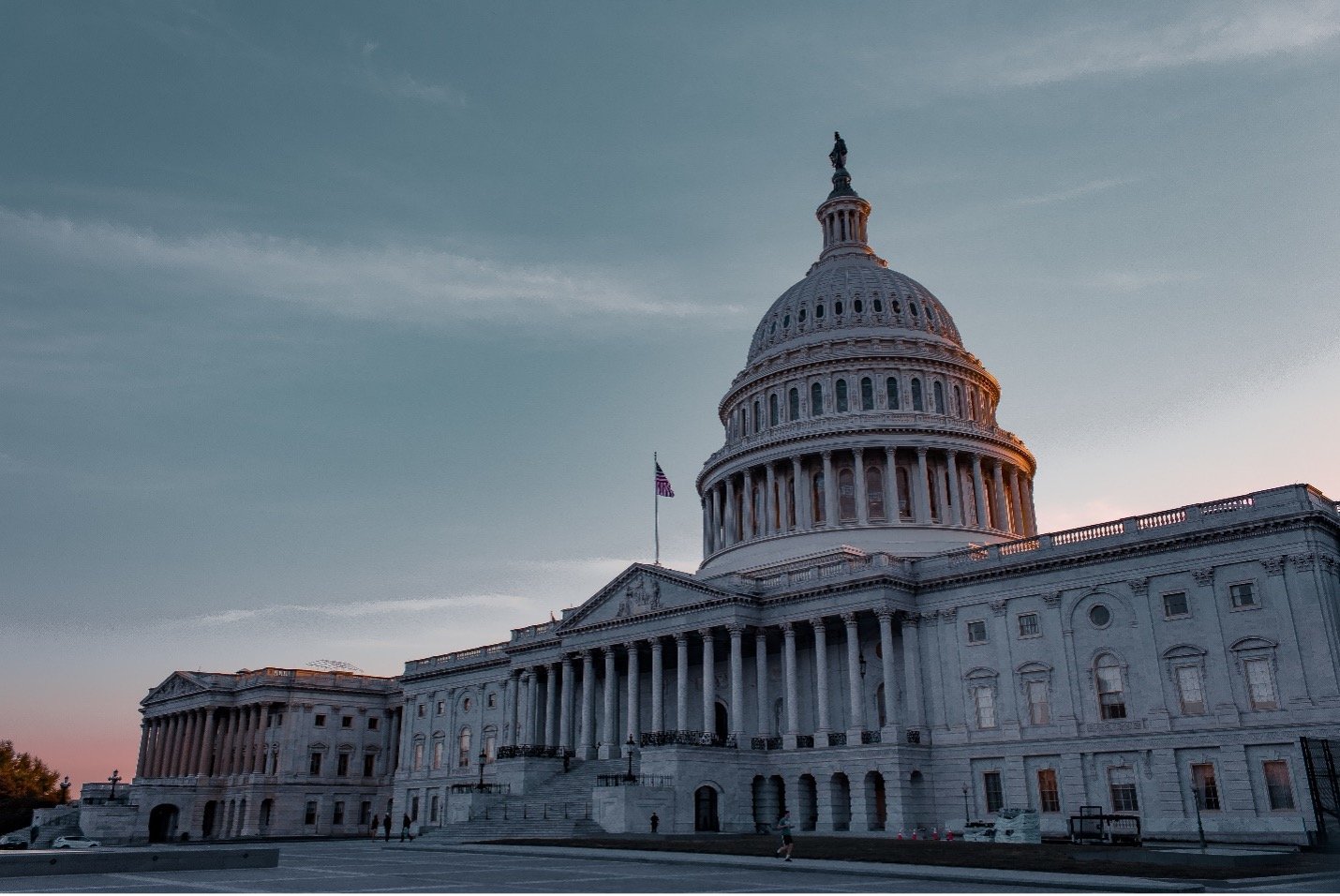2024 NDAA: What it Means for Government Contractors

Key Details: On December 22, 2023, the National Defense Authorization Act (NDAA) for Fiscal Year 2024 (FY24) was signed into law, transforming the defense contracting marketplace. The FY24 NDAA contains several developments and provisions that will impact defense contractors and subcontractors, such as artificial intelligence, cybersecurity, and inflationary relief. The definitive version of the FY24 NDAA is a close to 1,000-page document that encompasses a wide range of procurement and regulatory policies. As such, prime contractors and subcontractors alike are encouraged to conduct internal reviews, understand the updates under the FY24 NDAA, and speak with their legal counsel to ensure future compliance.
Ready to grow your contracting business? Ryan & Wetmore is poised to take your company to the next level. Contact us today for more information.
Background on the NDAA
The NDAA is an annual legislative document that authorizes and allocates funds and delineates programs for the Department of Defense (DoD). The NDAA has a history spanning 63 years and shapes defense policies. It also plays a crucial role in implementing procurement policies that impact government contractors, with a recent focus on small businesses and efficiency improvements.
FY24 Funding
The FY24 NDAA focuses on and addresses national security priorities, including strategic competition, new disruptive technologies, artificial intelligence, and modernization of ships, aircraft, and combat vehicles. The FY24 NDAA authorizes $883.7 billion in funding for national defense. The table below highlights the allocation of funds:
|
Areas |
Funding (in billions) |
|
Department of Defense |
$841.4 |
|
Department of Energy |
$32.4 |
|
Defense-Related Activities |
$0.4 |
|
NDAA Topline |
$874.2 |
|
Defense-Related Activities Outside of NDAA Jurisdiction |
$9.5 |
|
Total |
$883.7 |
The funding for 2024 is a $28 billion increase over 2023 funding levels. Key provisions that will impact the defense contracting marketplace are outlined below.
Key Provisions
Inflation Relief Extension
Section 824 of the FY24 NDAA temporarily extends the inflation relief established under Section 822 of the FY23 NDAA through December 31, 2024. Section 822 of the FY23 NDAA, titled “Modification of Contracts to Provide Extraordinary Relief Due to Inflation Impacts”, amended Title 50 and provided extraordinary contractual relief for contractors and subcontractors in fixed-price (FP) contracts who have faced increased inflationary pressure. Relief was provided in several ways, including an increase in the approval and Congressional notification thresholds to $500,000 and $150 million, respectively. Initially, Public Law 85-804 set the threshold for approval of any contract adjustments at $50,000, while Congressional notification was required for any adjustments over $25 million. The adjustments noted under Section 822 (and extended through Section 824) should be of particular interest to contractors performing on FP contracts and reflect an understanding of the financial pressures inflation has placed on contractors.
Section 826 of the FY24 NDAA also permits the DoD to use appropriated funds to modify FP contracts with economic price adjustments (following FAR (Federal Acquisition Regulation) Part 16).
Defense contractors are encouraged to review this portion of the NDAA and to consider inflationary pressures within their FP contracts. Additionally, contractors are encouraged to speak with legal counsel to determine if their contract qualifies for inflation relief.
Small Business Support
The FY24 NDAA includes several provisions aimed at promoting and strengthening small business contractors:
- Section 853: Modifications to the Procurement Technical Assistance Program
The Procurement Technical Assistance Program is a cooperative agreement between the DoD and nonprofits where these nonprofits help businesses procure and perform on contracts. Section 853 modifies this program and authorizes procurement technical assistance providers to educate small businesses about DFARS 252.204-7012 Safeguarding Covered Defense Information.
- Section 862: Payment of Subcontractors
Section 862 amends the Small Business Act and strengthens subcontractor payment protocols. This section aims to safeguard subcontractors against delayed payments and requires prime contractors to report past-due payments within 30 days. This was previously set at 90 days. This amendment seeks to accelerate the notification process and expand oversight capabilities, so payment delays are rectified efficiently.
- Section 863: Increase in Governmentwide Goal for Participation in Federal Contracts by Small Business Concerns Owned and Controlled by Service-Disabled Veterans
Section 863 also amends the Small Business Act and increases the governmentwide participation goal for SDVOSBs to 5% of the total of all prime contracts and subcontracts awarded for each fiscal year. This was previously set at 3%.
- Section 864: Eliminating Self-Certification for Service-Disabled Veteran-Owned Small Businesses
Under Section 864, SDVOSBs must now obtain certification from the Small Business Administration (SBA). This is a transition from self-certification as businesses owned and controlled by service-disabled veterans. The SBA is set to issue regulations to implement this change within 180 days of the NDAA enactment. The SBA-certification requirement will take effect October 1 of the fiscal year that begins after the required regulation's promulgation. As such, the ability for small businesses to self-certify as SDVOSB (Service-Disabled Veteran Owned Small Business) will be phased out.
- Section 865: Consideration of the Past Performance of Affiliate Companies of Small Business Concerns.
An amendment to the Defense Federal Acquisition Regulation Supplement (DFARS) is set to allow the past performance of small business affiliates to be factored in during evaluations. Small businesses will be allowed to leverage collective capabilities within their networks.
As highlighted above, the FY24 NDAA brings forth several provisions that are set to strengthen the small business contracting community. Small business contractors are encouraged to consider the following to stay ahead:
- Review the Procurement Technical Assistance Program and learn more about DFARS 252.204-7012 Safeguarding Covered Defense Information. If such information is handled, review your internal controls and cybersecurity infrastructure for compliance and updates as needed.
- Ensure your accounting system and policies and procedures are compliant and up to date. With the increase in the participation goal of SDVOSBs to 5%, contractors may begin performing on more or larger contracts.
- Review your status as an SDVOSB and begin planning for SBA certification ahead of the curve. Ensure you have the necessary documentation available and saved to a secure location for certification.
Artificial Intelligence
Greater focus has been placed on artificial intelligence (AI)’s impact on the contracting ecosystem. The FY24 NDAA has the following sections related to AI (Artificial Intelligence) that may impact contractors in the future.
- Section 1543 requires the DoD to create a Generative AI Detection and Watermark Prize Competition. This competition aims to evaluate recent technology and tools for generative AI detection and watermarking to facilitate research and development in support of military warfighting requirements. This is open to a wide variety of businesses such as federally funded research and development centers and the defense industrial base.
- Section 1544 requires the establishment of policies and procedures for the adoption and use of AI. This also requires the Secretary of Defense to include plans for identifying commercially available large language models within 120 days (about 4 months) of the enactment of the NDAA.
Contractors should assess their current AI adoption policies and whether internal controls are necessary to safeguard against security incidents. As AI use continues to evolve, it is essential to ensure adequate systems are in place to prevent cybersecurity threats.
Cybersecurity Risks
The FY24 NDAA also emphasizes the importance of adequate cybersecurity measures. The programs created by the NDAA focus on enhancing cybersecurity by using skilled contractors. Contractors are encouraged to review their cybersecurity infrastructure, policies, and internal controls to ensure sufficient measures are in place to increase security and to thoroughly review the NDAA for program information.
Environmental Reforms
Under Section 318 of the NDAA, the DoD is prohibited from requiring the disclosure of greenhouse gas emissions as a condition of award for non-traditional defense contractors. Additionally, traditional defense contractors will not be required to disclose greenhouse gas emissions until December 22, 2024. This follows the Federal Acquisition Regulation proposed rule in 2022 that required certain contractors to disclose greenhouse gas emissions.
Conflicts of Interest
Under Section 812, conflict of interest policies has been enhanced to target entities under NAICS code 5416. This includes companies in the management, scientific, and technical consulting services. Contractors under this category must certify that there are no conflicts of interest before entering and performing on a contract. This also covers subsidiaries and affiliates. Contractors who do not certify or maintain a conflict-of-interest mitigation plan may be prohibited from contracting with the DoD. Additionally, the DoD cannot award contractors that cannot make the required certification new contracts for consulting services. As such, contractors in the NAICS code above are encouraged to perform a thorough review of their conflict-of-interest policies and internal controls and to ensure certification before entering a contract.
The DoD is required to issue a Defense Federal Acquisition Regulation Supplement amendment to enact this provision within 180 days (about 6 months). Impacted contractors are encouraged to track the amendment and effective date.
Conclusion
The FY24 NDAA brings about several amendments and additions to strengthen the contracting base. Defense contractors and subcontractors are encouraged to review the NDAA in detail to understand future implications and to perform the following action items to stay ahead.
Interested in how Ryan & Wetmore can boost your contracting business to the next level? Visit our website here to learn more.
- Meet with your legal counsel to discuss the implications of the NDAA.
- Conduct an internal review of your business to understand where potential gaps need to be filled. This includes reviewing your accounting system, policies and procedures, cybersecurity practices and infrastructure, AI usage, and potential conflicts of interest, to name a few.
- Document any necessary changes that need to be made and ensure employees are aware of and trained in new regulations.
- Review the terms and conditions of your fixed-price contracts and consider whether you are eligible for an economic price adjustment. Discuss this with an advisor.
- As noted above, small businesses are encouraged to perform the following:
- Review the Procurement Technical Assistance Program and learn more about DFARS 252.204-7012 Safeguarding Covered Defense Information. If such information is handled, review your internal controls and cybersecurity infrastructure for compliance and updates as needed.
- Ensure your accounting system and policies and procedures are compliant and up to date. With the increase in the participation goal of SDVOSBs to 5%, contractors may begin performing on more or larger contracts.
- Review your status as an SDVOSB and begin planning for SBA certification ahead of the curve. Ensure you have the necessary documentation available and saved to a secure location for certification.
- Contractors with NAICS 5416 are encouraged to review their conflict-of-interest policies and to begin preparing documentation for certification.
For further information and expertise, contact Ryan & Wetmore today.
Today’s Thought Leaders

About Peter Ryan
Partner, Co-founder, & CPA
Peter T. Ryan co-founded Ryan & Wetmore in 1988 with business partner Michael J. Wetmore. Peter provides clients with the best strategies for success. His expertise extends across various industries. Peter obtained a Master of Business Administration in Finance from the University of Baltimore and a Bachelor of Arts in Accounting from the Catholic University of America.

About Rosie Cheng
Finance Consultant
Rosie Cheng is a Finance Consultant at Ryan & Wetmore. She focuses on government contracting services and produces many of the firm’s government contracting newsletters. Rosie graduated from Georgetown University with a Master of Science in Management and from William and Mary with a Bachelor of Business Administration.


